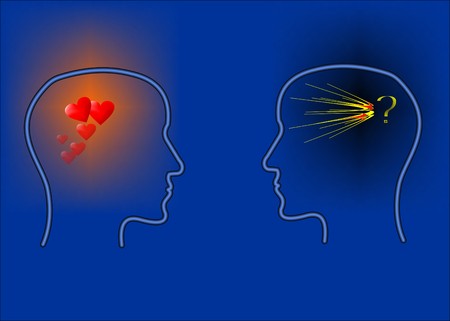Introduction to Sleep Disorders and Nightmares
In the gentle hush of the British night, when the world outside grows quiet and the city lights cast their soft glow, many of us seek refuge in sleep—a realm where we hope to find rest, renewal, and perhaps even a touch of magic. Yet, for countless individuals across the UK, this nightly journey is far from peaceful. Instead, it is interrupted by sleep disorders and haunted by vivid nightmares that leave hearts racing and minds unsettled. But what do these terms truly mean, and why are they becoming such a significant topic in contemporary British society? Sleep disorders encompass a wide spectrum of conditions that disrupt our natural sleep patterns—from struggling to fall asleep to waking too early or feeling unrested no matter how long we lie in bed. Nightmares, on the other hand, are intense dreams that can stir up fear, anxiety, or distress, often lingering long after dawn breaks. In a world where stress levels climb and technology tugs at our attention even after dark, understanding the nuances of our nighttime struggles has never felt more urgent. With every restless night and uneasy dream, more Britons find themselves searching for answers, yearning not only for rest but also for a sense of belonging in their own beds. This exploration into sleep disorders and nightmares invites us to look beyond statistics—into stories, feelings, and the shared human longing for peaceful slumber beneath the same ever-watchful stars.
2. Prevalence of Sleep Disorders in the United Kingdom
When the night falls over the British Isles, not every household drifts seamlessly into restful slumber. Recent studies reveal that sleep disorders are far more prevalent than one might assume, affecting millions of adults and children across the UK. The intricate tapestry of British life—marked by long commutes, unpredictable weather, and a culture that values both tea-fuelled productivity and late-night telly—creates a unique environment for sleep disturbances to flourish.
The Numbers Behind Sleepless Nights
According to data from the NHS and independent research bodies, around one in three adults in the UK regularly suffers from insomnia or other sleep-related conditions. Among children, approximately 20% are reported to experience persistent sleep difficulties, often manifesting as nightmares or night terrors. These figures highlight how deeply woven sleep challenges are into the fabric of daily British life.
Prevalence Table: Sleep Disorders in the UK
| Group | % Affected by Insomnia | % Experiencing Nightmares | Other Sleep Disorders (%) |
|---|---|---|---|
| Adults (18+) | 33% | 15% | 8% |
| Children (5-16) | 20% | 25% | 10% |
The British Experience: More Than Just Lost Sleep
Diving deeper into these statistics reveals nuanced stories—a young professional tossing and turning before an important pitch, a schoolchild waking up in tears after a vivid nightmare, or an elderly Londoner whose restless nights echo with memories of times gone by. For many Britons, sleeplessness is not just a fleeting inconvenience but a recurring companion that shapes mood, productivity, and even relationships.
Whether it’s the pressure of modern work culture, digital distractions before bed, or simply the unpredictable pace of British weather impacting circadian rhythms, sleep disorders have become a significant public health concern. Understanding their prevalence is the first step towards cultivating healthier nights across the nation.

3. Cultural Influences on Sleep in the UK
Within the unique tapestry of British life, sleep is more than just a nightly ritual—it’s an experience shaped by centuries of culture, tradition, and daily habits. The famed British reserve, the ceaseless pace of city living, and even the weather play quiet but powerful roles in sculpting how people across the UK drift into slumber—or struggle to do so.
The British Way: Lifestyle and Sleep Patterns
From early-morning commutes to late-night telly, the British lifestyle often leans towards long working hours and a bustling social calendar. Many Britons find themselves navigating packed Tube trains, juggling school runs, or squeezing in a pint at the local before heading home. Such routines can make it difficult to maintain consistent sleep schedules, leading to fragmented rest or late nights spent tossing and turning.
Work Culture: The Pressure Cooker Effect
The UK’s work culture, especially in urban centres like London and Manchester, is renowned for its intensity. The demand to ‘keep calm and carry on’—a phrase steeped in wartime resilience—still echoes today. This ethos can sometimes translate into high stress levels and a reluctance to prioritise rest. Deadlines loom large, emails never quite stop pinging, and many find themselves burning the midnight oil, whether they’re teachers marking papers or bankers checking spreadsheets. Over time, this pressure-cooker environment can leave sleep quality frayed at the edges.
Dreams Beneath Grey Skies: Weather’s Subtle Influence
No discussion of British sleep would be complete without mentioning the infamous weather. The UK’s grey drizzle and unpredictable shifts between sunshine and rain are more than topics for small talk—they influence mood and circadian rhythms alike. Shorter daylight hours during winter can disrupt melatonin production and leave many feeling perpetually tired or prone to restless nights punctuated by vivid dreams and even nightmares.
The Role of Tradition and Storytelling
Generations have grown up with tales of haunted moors or mischievous spirits lurking in shadowy corners—a nod to Britain’s rich folklore tradition. These stories, passed down through families or spun around firesides, may still weave their way into modern dreams and nightmares. For some, night terrors echo ancient anxieties; for others, a sleepless night might feel like a page from a classic English ghost story.
In Tune with National Rhythms
Ultimately, understanding sleep disorders and nightmares in the UK means looking beyond medical definitions—into the heart of British culture itself. Whether lulled by raindrops against sash windows or kept awake by racing thoughts after a busy day, the nation’s collective sleep is intimately linked to its identity. To dream in Britain is to dream within this unique blend of history, routine, and ever-changing skies.
4. Personal Stories: Sleepless Nights and Troubled Dreams
To truly grasp the scope of sleep disorders and nightmares in the UK, we must listen to the voices echoing through quiet bedrooms from Brighton to Belfast. These are not mere statistics, but human experiences—each sleepless night a chapter in someone’s story, each troubled dream a call for understanding. Let us wander gently into the lives of people across England, Scotland, Wales, and Northern Ireland, and sense the soulful threads binding us in shared nightly struggles.
England: The City That Never Truly Sleeps
In bustling London, Sarah, a young professional, lies awake counting the distant rumble of trains. Despite her best efforts with herbal teas and meditation apps, insomnia visits her three or four nights a week. “It’s as if my mind refuses to switch off,” she confides. Sarah’s story is echoed by many urban dwellers whose minds race long after city lights dim.
Scotland: Whispers on Highland Winds
Up north in Edinburgh, Andrew shares his recurring nightmares—dark forests and endless corridors—that leave him waking in a cold sweat. “There’s an ancestral weight to my dreams,” he muses. For many Scots, folklore blends with modern anxieties, weaving nightmares that can feel both ancient and immediate.
Wales: Restless Nights in Rolling Valleys
In rural Carmarthenshire, Eleri finds herself waking hourly as if standing guard over invisible worries. She describes her experience as “nightly vigilance,” common among carers and those burdened by family responsibilities. The gentle hush of Welsh countryside provides no guarantee of restful slumber for all its beauty.
Northern Ireland: Shadows Across the Quiet Fields
Belfast resident Declan speaks quietly of trauma-related sleep disturbances. “Dreams replay old memories,” he says, referring to events long past that still haunt his nights. His story is one of many reflecting how collective history can seep into private sleep.
A Glimpse into Our Shared Experience
| Region | Common Sleep Issues | Personal Insight |
|---|---|---|
| England | Insomnia, Racing Thoughts | Struggles with shutting off after busy days; urban stressors |
| Scotland | Nightmares, Night Terrors | Ancestral themes mix with present-day worries; vivid dreaming |
| Wales | Fragmented Sleep, Vigilance | Caring responsibilities; frequent awakenings despite peaceful setting |
| Northern Ireland | Sleep Disturbances Post-Trauma | Historical memories affecting rest; reliving events through dreams |
A Soulful Connection Across Borders
The stories above reveal more than statistics ever could—they invite empathy and remind us we are never truly alone in our struggles. Whether you find yourself lying awake under London’s neon glow or tossing beneath starry rural skies, there is a community woven together by the search for peaceful rest. In sharing these stories, we honour each other’s journeys through darkness towards dawn.
5. Recognising the Signs and Seeking Help
For many in the UK, sleepless nights and vivid nightmares are brushed aside as mere inconveniences or a part of modern stress. Yet, beneath these restless hours may lie deeper sleep disorders that can quietly affect our health, mood, and daily lives. Understanding when it’s more than “just a bad night” is vital.
Spotting the Telltale Signs
If you find yourself regularly struggling to fall asleep, waking up frequently during the night, or feeling exhausted despite spending hours in bed, these could be red flags. Recurrent nightmares that leave you anxious or disrupt your everyday routine are also worth noting. Listen to your intuition—if something feels off, it probably is.
When Should You Seek Support?
The NHS encourages anyone who experiences persistent sleep difficulties for more than a few weeks to reach out for guidance. If nightmares trigger anxiety, depression, or impact your ability to function at work or home, it’s time to seek help. Remember: seeking support isn’t a sign of weakness—it’s an act of self-care and wisdom.
NHS and Local Charities: Here to Help
The NHS offers comprehensive advice through its online resources and GP consultations, where you can discuss symptoms confidentially and access treatment options such as cognitive behavioural therapy (CBT) for insomnia. Beyond the NHS, UK charities like The Sleep Charity and Mind provide compassionate helplines, support groups, and practical tips tailored for British lifestyles. These services understand the unique pressures faced by people living in the UK—be it noisy city life or rural isolation—and offer guidance rooted in local experience.
Trust that support is close at hand. By recognising the signs early and connecting with these trusted resources, you take a gentle yet powerful step towards reclaiming peaceful nights and brighter days ahead.
6. Looking Forward: Hope, Healing, and Better Sleep
In the gentle quiet of the British night, where ancient oaks stand watch and city lights flicker like distant dreams, hope always lingers. If you or someone you love has struggled with sleep disorders or nightmares, know that you are not alone—and that better nights can indeed be within reach. New treatments are emerging across the UK, from cognitive behavioural therapy tailored to sleep (CBT-I), to innovative mindfulness practices inspired by both science and local traditions. Many find solace in guided meditation apps crafted for British sensibilities, or through NHS-supported group therapies that foster a sense of belonging and understanding.
Intuitive Guidance for the Soul
Sometimes, healing begins with a gentle self-enquiry: What is my body trying to tell me? Honouring your intuition—whether it’s sipping a calming herbal tea before bed, listening to the rain tap softly against your window, or journaling about your dreams—can be profoundly restorative. Trusting your inner wisdom may lead you towards routines and rituals that feel uniquely comforting amid the rhythm of British life.
Emerging Treatments Lighting the Way
The landscape of sleep medicine is evolving. From virtual sleep clinics now available through the NHS to wearable technology monitoring your slumber under the duvet, support is growing more accessible than ever. Promising therapies such as lucid dreaming workshops or community-led sleep retreats in the countryside are helping many reconnect with restful nights and brighter mornings.
Community: The Heartbeat of Healing
Across towns and cities—from London’s bustling heart to the tranquil Scottish Highlands—community groups offer spaces for sharing stories and forging connections. Whether it’s a local support circle, an online forum, or a village hall gathering over a cuppa, these shared experiences remind us that we heal best together.
Let this be your invitation: embrace the mystery of nightfall, seek gentle help when needed, and hold onto hope. In Britain’s moonlit embrace, there is always the promise of renewal—and with compassionate guidance and collective support, every soul can look forward to peaceful slumbers bathed in silver light.


